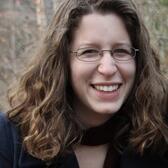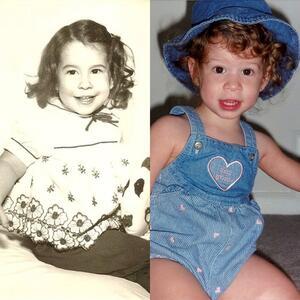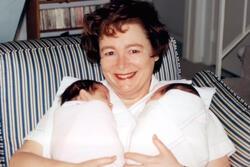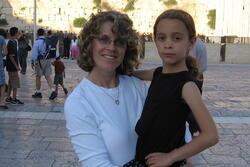The Power of Personal Histories
As an aspiring oral historian, I’ve always gotten chills when listening to recorded interviews. I love the interviewer’s inviting questions, the way the interviewee may leap into a narrative, the chance for the listener to peer into the interviewee’s past, and the powerful, sometimes nostalgic, recollection of a story.
Along with my feminism and Judaism, my mother instilled in me a love of stories, and a deep belief in capturing the nuances of a person’s life. She certainly feels this way about my life, as her only daughter. Since my conception, my mom has been recording my developmental milestones––from my first tooth to my first period to my first kiss; from my achievements and awards in elementary school to my high school graduation. She has even tracked the smaller things––from my favorite foods to arguments with friends (which, at the time I thought were the end of the world) to my first B on a report card to . . . every other period since my first.
Since I am an only child with no currently living grandparents, my mom wanted to instill in me the treasure of memories, the importance of recording in order to remember, and the noteworthiness of the things that got me to where I am today.
When I was younger, I didn’t really value the lengthy novel my mom was keeping about my life. However, when she gave me a printed version of these records upon my high school graduation, I immediately realized she was giving me an heirloom, one that could be passed down so that my children, my children’s children, and even my children’s children’s children would be able to hear my stories.
My mother’s book was a gift of personal history, full of emotion, experience, perspective, and spirit. This gift––of both keeping a record of a life and actively capturing history as it unfolds––is one that I was compelled to give back to my mother recently, when I took down her own oral history. I wanted to make sure that her story was also recorded and that it could be passed down to my children, and my children’s children. Now generations to come will know my, as well as my mother's, story.
When I interviewed my mother, she shared with me: “It was extremely important to always speak to you, not at you. To answer the questions you asked and to always keep the lines of communication open as I have missed the presence of women family members in my life. There were so many things I was not told as a child, and when I finally thought to ask the questions, there was no one to ask.”
Everyone has a story, we just have to remember to ask.
I know firsthand what it’s like to have missed an opportunity to ask. The only grandmother I had the privilege of knowing lived in a nursing home with multiple sclerosis; I wish I had the insight as a younger woman to spend more time with her, conversing, inquiring, and listening to her stories. My mother’s sister passed before I ever got the chance to meet her, and the only stories I have of her have been from what my mother was told or remembers about her.
It is important––whoever you are, reading this––to have the insight to converse, inquire, and listen now (for we do not have time machines yet!) and to ask the women you love, admire, or are intrigued by, to share their stories before they are gone and their story is too.
Collecting these stories, and allowing women to speak for themselves about their experiences is an inherently feminist activity. Who else (and who better) to tell our story, if not ourselves?
History, as a field of study, largely excludes and diminishes women’s contributions and their experiences. There is no space for the young woman who is excited about her first (and second and third) period or the mother who feels an imperative to capture her only daughter’s experiences.
A key part of correcting the historical narrative is to actively seek out the histories of people whose voices often go unheard and uncelebrated, and to proclaim the power of women’s personal histories, because everyone has a story, we just have to remember to ask.
So, inquire and listen and record (with permission!). Every day, we are all creating history. And we can collect others’ stories. It’s easier than ever to record in this age of technology––capture a Live Photo, take a video, hit the play button on that voice recording app that comes with your phone––and channel the power of personal stories to tell a better, more inclusive, and fuller history.
To learn more about JWA’s oral history project, Story Aperture, please visit our dedicated page.








Rena, Thank you, thank you for your insight, for your openness to share your story, for your wonderful memories and for teaching us a little bit about ourselves. May we all learn a little bit from what you have written, and begin the conversation we should have done long ago. We really do need to share life, and you have spurred on many I am sure it to do just that. So for us, the conversation continues. Thank you!